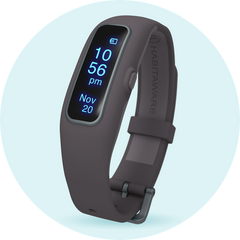If you haven't experienced the relentless urges associated with chronic hair pulling, skin picking or nail biting, it can be difficult to grasp some of the struggles tied to these behaviors. While well-known self-care tips are useful in managing these impulses, there's a whole other realm of challenges that people with body-focused repetitive behaviors (BFRBs) face every day. In this blog post, we'll delve into these often-overlooked struggles and explore ways to create awareness and understanding for those living with these complex conditions.
-
Beauty Standards & Body-focused Repetitive Behaviors
For many individuals living with a BFRB, societal beauty norms can add stress to the already emotional burden of the behavior. Hair loss, skin blemishes, and damaged nails can be a constant reminder of their struggle, which may generate feelings of shame and isolation. Friends and family can ease this burden by validating the experiences of their loved ones and most importantly, refraining from making judgmental comments. Encouraging finding beauty in action and personality instead of surface-level beauty can help people detach their sense of worth from how they look, and how BFRBs can play a role in that.
-
Social Impact of Body-focused Repetitive Behaviors
People with BFRBs may avoid social situations for fear of drawing unwanted attention to their appearance or behaviors, leading to missed opportunities for forming connections and enjoying activities. Kids with BFRBs fearing pool parties, team sports, sleepovers, or other social events are commonly shared sentiments amongst the community. Encouraging open conversation about BFRBs can create a supportive environment that minimizes this social anxiety.
-
Time Management and Body-focused Repetitive Behaviors
The time spent in a BFRB-induced trance can add up, leading to potential disruption of daily routines, including work, school, and social interactions. Learning specific strategies and techniques to redirect the urge can help individuals with BFRBs spend their time on things that are more important to them, like spending time with friends and family, or engaging in projects that fuel their passion.
-
Dealing with Shame and Self-Image as a Person with a BFRB
Many of those affected by BFRBs struggle with shame and negative self-image. It's crucial to remember that BFRBs are genuine medical conditions and should be met with understanding, not judgment. Joining support groups and seeking out professional help can aid in the path toward self-acceptance. At HabitAware, we try to help by uniting people with the common goal of learning to manage their BFRBs in an online community.
The difficulties conveyed above only scratch the surface of the struggles someone with a BFRB could potentially face. Each person's experience is unique and should not be discounted due to the widespread lack of comprehension surrounding these enduring conditions. Let's all work together to foster empathy, awareness, and a supportive environment for those living with body-focused repetitive behaviors.
Do you or someone you know live with a BFRB? To stay connected and informed on this subject, please consider subscribing to our newsletter or sharing this post on your favorite social media platform. Together, we can raise awareness and promote understanding for the millions living with BFRBs.
At HabitAware, we understand from personal experience that living with a body-focused repetitive behavior (BFRB) can be difficult and isolating. That’s why our goal is to provide empowering awareness and resources through comprehensive support so people can manage their BFRBs. We do this in the form of a gesture-detecting smart bracelet, coaching calls from peers who have been through the management process, and an online community for those looking to find help or share progress stories and experiences. Through this combination of tangible resources and connection, we hope to create a brighter tomorrow for those affected by BFRBs, allowing them to focus on what matters most to them. With the vision of creating meaningful change and providing true empowerment, HabitAware works tirelessly every day toward making real impact in the lives of individuals everywhere.
Photo by VicTor, sourced from nappy.co
About Keen2 by HabitAware
 HabitAware makes Keen2, a smart bracelet that helps manage nail biting, hair pulling, thumb sucking, and other subconscious behaviors. Customized gesture detection brings you into awareness and helps you develop healthier habits.
HabitAware makes Keen2, a smart bracelet that helps manage nail biting, hair pulling, thumb sucking, and other subconscious behaviors. Customized gesture detection brings you into awareness and helps you develop healthier habits.

